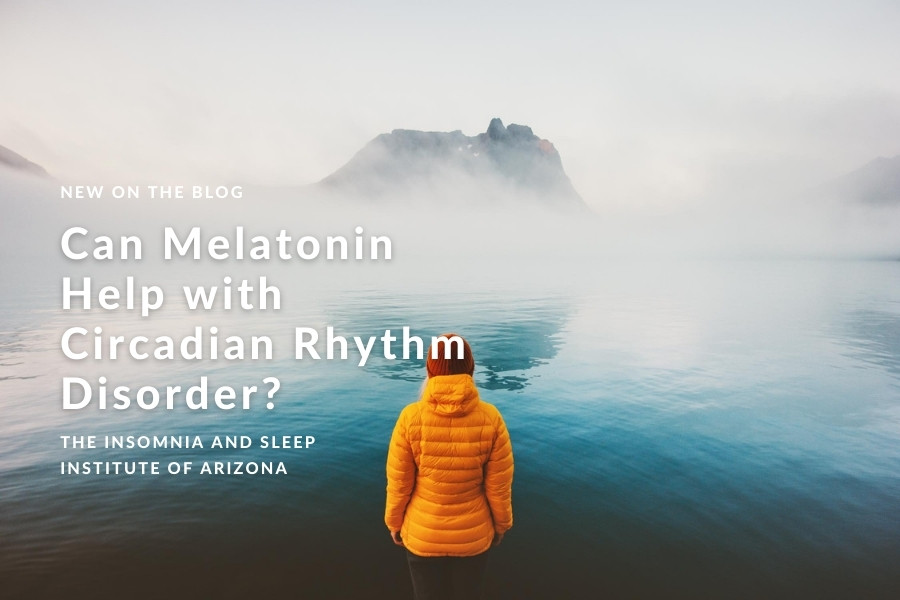Sales for melatonin exploded during the pandemic and remain high today. We often think of melatonin as a means for helping with insomnia, but a study has shown that it might also help with Circadian Rhythm Disorder (CRD). CRD is one of the many sleep disorders we treat at The Insomnia and Sleep Institute of Arizona, where we are committed to helping all patients get the sleep they need. OTC melatonin can be found around the country as a supplement and is touted as helping promote sleep. There are also claims that it can help prevent osteoporosis, improve the immune system, and of course help with sleep disorders beyond insomnia. Typically, the recommended dose is 0.3 – 3 mg taken a few hours before bed (however, in recent months there have been reports that the doses labeled on various OTC melatonin tablets are vastly incorrect).
It is important to note that, since melatonin is considered a supplement, it has not been cleared as safe in clinical trials. In fact, little is known about how safe and helpful it is in the long-term. We do know that it is not safe for those with some autoimmune diseases, such as lupus. Melatonin is a naturally-produced hormone in our bodies, so taking additional synthetic options can lead to unpredictable outcomes. Our natural melatonin system has three key features including circadian (diurnal) rhythmicity, photosensitivity, and a decrease in production as we get older. Melatonin in our bodies comes from serotonin and it is released via our internal clocks—in a healthy human, this happens only in the dark. We should have the most melatonin at night with a sharp drop when REM occurs.
Circadian Rhythms and Melatonin
Our circadian oscillator is like our circadian pacemaker. It is in charge of physiologic processes like wakefulness and sleep. The frequency of this pacemaker is largely insensitive to changes in environment, both internal and external—it is quite stable. However, a chronobiotic agent can alter this and melatonin supplements are just that. Some studies have shown that using supplements or medications to manipulate our biologic rhythm is promising. Specifically, melatonin plays a big role in our biorhythms, which means it may be helpful for some people struggling with CRD.
However, more studies are needed in order to confirm whether this should be a primary approach for treating CRD. It can also be ineffective at best and dangerous at worst to depend on non-prescription melatonin given the recent surge of wrong labeling found in various studies. If you have CRD, or suspect that you do, a much better approach is to schedule a consultation with a sleep specialist.
CRD and You
CRD is a type of sleep disorder in which your internal clock isn’t “right.” The sleep wake cycle is off. This is different than acute insomnia, such as jet lag, which is a temporary condition that can be frustrating but will self-correct. Melatonin may be an effective tool in helping to get over jet lag. However, those with diagnosed CRD do not have an internal clock that will adjust itself. This can lead to serious consequences such as excessive daytime sleepiness, lack of sleep, and an inability to maintain jobs and relationships. We are meant to be alert during daytime hours and asleep during nighttime hours. When CRD occurs, we simply cannot align with that schedule.
The good news is that help is available—and although melatonin may be recommended by your sleep doctor as part of a regimen, it is not a good idea to try to self-supplement. CRD must be diagnosed by a sleep expert, and every consultation at our clinic is with a professional who can diagnose sleep disorders like CRD (and prescribe testing if needed). If you or your child has CRD, it is possible to redirect your internal clock, but not without medical intervention. To find out more about CRD treatment and help with any other sleep disorder, schedule your referral-free consult today. Get in touch with The Insomnia and Sleep Institute by calling the office during business hours or, for the quickest response, simply complete the online contact form right now.





